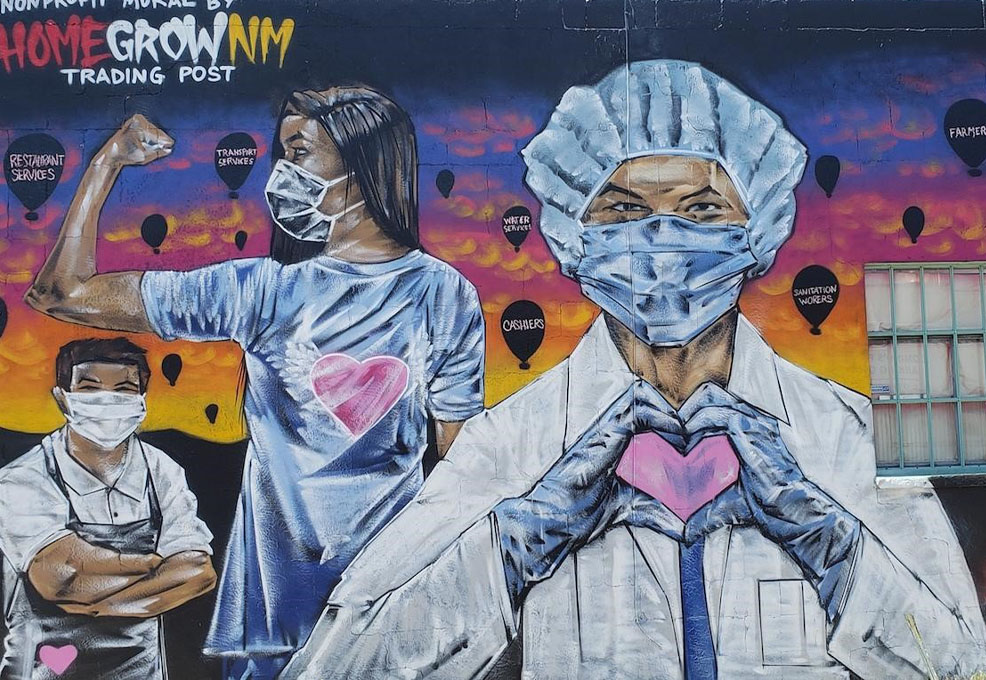Taiwan’s S&T Challenges and Opportunities in the Post Pandemic Era

Author(s)
Szu-Hsien LeeBiography
Professor Lee is a distinguished professor at National Taiwan Normal University. He serves as Editor-in-chief for the Formosan Journal of Mental Health, and is Director of the Center for Addiction Prevention and Policy Research.
Academy/University/Organization
National Taiwan Normal UniversitySource
https://bmcpsychiatry.biomedcentral.com/articles/10.1186/s12888-020-02786-8-
TAGS
-
Share this article
You are free to share this article under the Attribution 4.0 International license
- HUMANITIES & SOCIAL SCIENCES
- Text & Image
- January 16,2021
Have extensive media coverage of COVID-19 and the national emergency announcements from the government caused increased anxiety in Taiwan? Will Taiwan's health care system collapse due to providing care in a very short period of time to a large number of patients with suspected COVID-19? A survey of laypersons in Taiwan indicated that there was a significant increasing trend of self-reported anxiety symptoms and preventive behaviors during the early period of the pandemic. Results also revealed that upward trends of anxiety and preventive behavior were correlated. The survey responded to by healthcare providers showed that perceived stigma and social exclusion provoked depression, which further led to burnout. The outbreak of COVID-19 not only poses a threat to physical health but also impacts mental health, as evidenced by the increasing anxiety among the general public. Moreover, healthcare professionals experienced acute stress and burnout in the workplace. It is imperative to pay particular attention to people whose mental health is impacted by COVID-19 and to promote mental health by providing adequate support amid the pandemic.
Infection with Severe Acute Respiratory Syndrome Coronavirus 2 (SARS-CoV-2) leads to Coronavirus Disease 2019 (COVID-19). The basic reproduction number (R0) of COVID-19 is about 2.5, and the case fatality rate in Europe is 7.5%. Compared to influenza endemics, COVID-19 has higher transmission and fatality rates. At the beginning of the pandemic, Taiwan, as predicted by Johns Hopkins University, would have the second-highest number of COVID-19 patients in the world given its geographic proximity to and enormous number of interactions with China. Anxiety has been fueled by extensive media coverage of COVID-19 and national emergency announcements by the government. Further, healthcare providers have to care for a large number of patients with suspected COVID-19 at very short notice, while at the same time protecting themselves from infection. Such acute stress can result in burnout, social exclusion, and major depressive episodes, which may further lead to the collapse of the healthcare system and result in failure to control the pandemic.
To understand the mental health conditions of both the general population and medical professionals in response to the COVID-19 pandemic, Dr. Tony Szu-Hsien Lee initiated research projects to estimate the impact of the pandemic on mental health right after the lockdown in Wuhan, China. An anonymous survey was delivered to investigate anxiety symptoms and preventive behaviors among the general population. Data collected in three different time periods at the beginning of 2020: (1) from January 23rd (the beginning of lockdown in Wuhan) to February 8th (the first COVID-19 case without symptoms in Taiwan), (2) from February 8th to February 16th (the first COVID-19 death in Taiwan), and (3) from February 27th to March 9th. The research team identified 12 preventive behaviors from the literature, including personal protection, cough etiquette, social distancing, testing, and reporting. Professor Lee immediately shared the information with the public to inform health education strategies. During the three periods of time, 45%, 50%, and 55% of people in Taiwan experienced moderate and severe anxiety respectively; and, the increasing trend was statistically significant. Furthermore, respectively 46%, 58%, and 66% of people in Taiwan reported that they “often” or “always” adopted preventive behaviors during the three time periods. Results from statistical analysis revealed that anxiety was significantly associated with disease preventive behaviors; yet, gender, age, education, and income had no effect on the increasing trend.
In the second stage, 1,795 healthcare professionals completed an anonymous survey in March 2020. Results showed that 40.3% of healthcare professionals experienced burnout, 78.1% reported severe anxiety symptoms, and 45.5% experienced depression. Burnout was shown to be associated with caring for patients with confirmed COVID-19, depression, and perceived stigma. The results of structural equation modeling confirmed that perceived stigma and social exclusion may cause depression, which in turn may further lead to burnout. More specifically, healthcare professionals may be discriminated against and socially excluded by family, relatives, and even food delivery persons due to caring for COVID-19 patients in hospitals. Such loss of interpersonal and emotional support during stressful times can cause depression that ultimately leads to burnout. However, the success of Taiwan’s pandemic control is largely credited to the care delivered by the healthcare providers given at the right time, as it has reduced the spread of COVID-19. Should healthcare professionals lose the ability to work due to burnout and depression, the health care system will be on the verge of collapse, and the pandemic will be out of control.
In summary, according to a series of studies by Dr. Tony Szu-Hsien Lee’s team, the outbreak of COVID-19 not only poses a threat to physical health but also impacts mental health. Moreover, healthcare professionals may even experience acute stress, trauma, and burnout, but have insufficient support. It is imperative to pay particular attention to people whose mental health is impacted by COVID-19, and to promote mental health by providing adequate support amid the pandemic.
STAY CONNECTED. SUBSCRIBE TO OUR NEWSLETTER.
Add your information below to receive daily updates.




